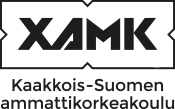Supply chain management (5 cr)
Code: LT00AB01-3024
General information
Enrollment
08.11.2021 - 16.01.2022
Timing
03.01.2022 - 29.04.2022
Number of ECTS credits allocated
5 op
Virtual portion
3 op
RDI portion
3 op
Mode of delivery
40 % Contact teaching, 60 % Distance learning
Campus
Kouvola Campus
Teaching languages
- English
Degree programmes
- Degree Programme in Digital International Business
Teachers
- Jagat Kunwar
Teacher in charge
Jagat Kunwar
Groups
-
IBKV20SP1Digital international business, full-time studies
-
IBKV20SP2Digital international business, full-time studies
Objective
You are able to describe the supply chain of a company. You are able to explain the importance of supply chain for the profitability of a company. You are able to demonstrate that you are familiar with the logistics system of a company. You are able to describe the importance of ERP on supply chain. You are able to use the basic functions of an ERP system.
Content
What is the structure of a supply chain? How does the supply chain affect the profitability of the company? What is the significance of logistical decisions for the company? How does ERP help in controlling the supply chain? What basic functions and reports are there in an ERP system?
Materials
(1) Lecture notes and cases from the class
(2) Selected chapters from the following source materials ( only most important are mentioned)
(a) Christopher, M., 2011. Logistics and Supply Chain Management. Edinburgh Gate: Pearson Education Limited.
(b) Weele, A. J. V., 2014. Purchasing and Supply Chain Management. Hampshire: Cengage Learning.
(c) Monczka, R. M., Handfield, R. B., Giunipero, L. C. & Patterson, J. L., 2009. Purchasing and Supply Chain Management. 4th Edition. Mason, USA: South-Western Cengage Learning.
Teaching methods
When the course is over, students should be able to:
(1) explain the basic concepts of supply chain management
(2) have basic understanding of supplier selection and supplier network configuration process
(3) understand important operational issues in the supply chain such as logistics, TQM, inventory management and demand management process
(4) understand integration issues in the supply chain
(5) have basic understanding about why sustainability thinking is crucial in the supply chain
Employer connections
During the course, you will,
(1) solve real life business cases using supply chain management thinking
(2) develop solutions to SCM related problems faced by organization of your choice.
Exam schedules
The maximum number of points obtainable from the course is 100, which comprises of 5 theme based tasks each comprising 20% of the overall grades.
Student workload
The maximum number of points obtainable from the course is 100, which comprises of 5 theme based tasks each comprising 20% of the overall grades.
Further information
The course consists of both F2F and virtual meetings.
Evaluation scale
1-5
Assessment methods and criteria
The maximum number of points obtainable from the course is 100, which comprises of 5 theme based tasks each comprising 20% of the overall grades.
Qualifications
Business and entrepreneurship and Financial accounting, or equivalent knowledge
